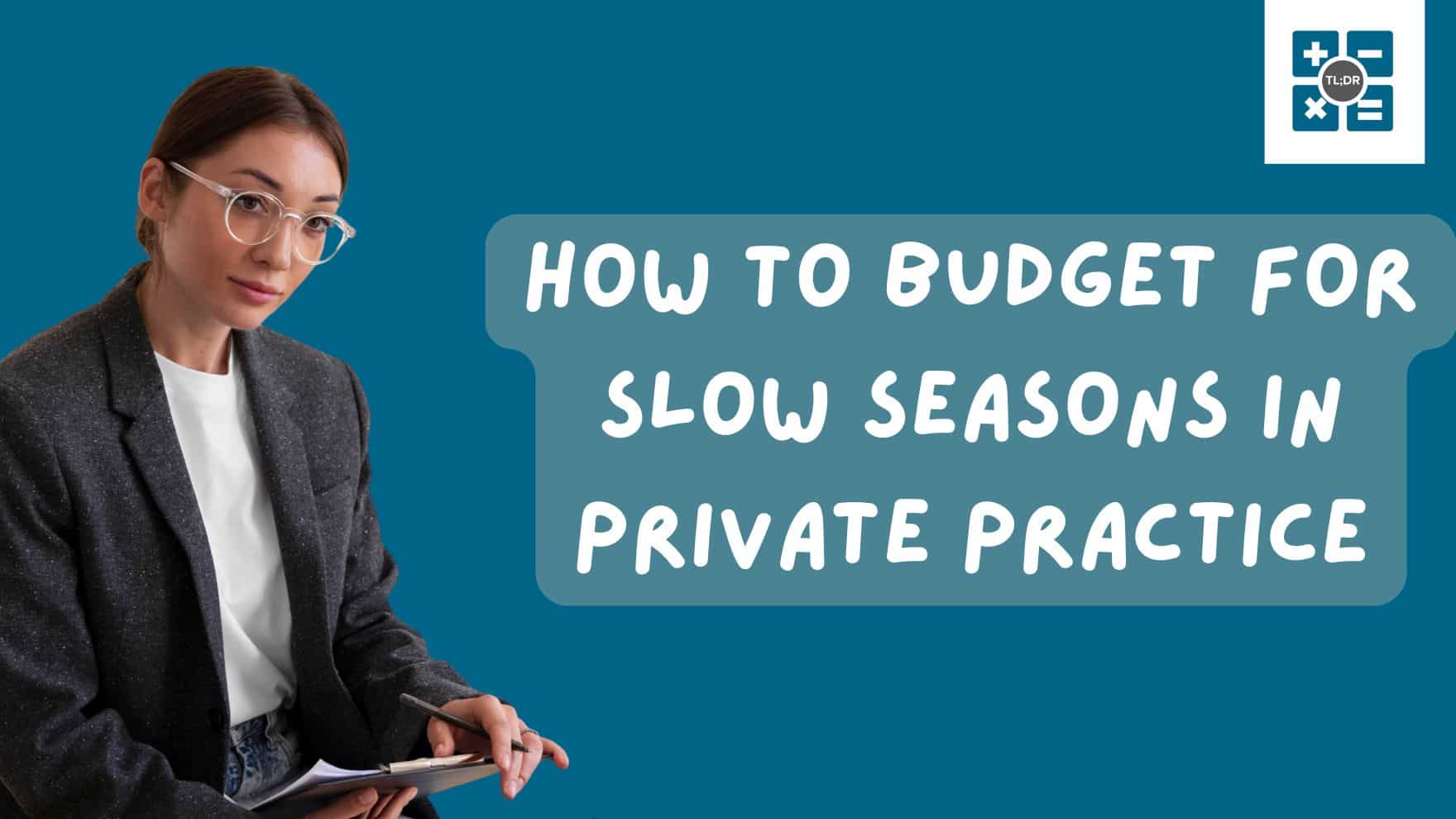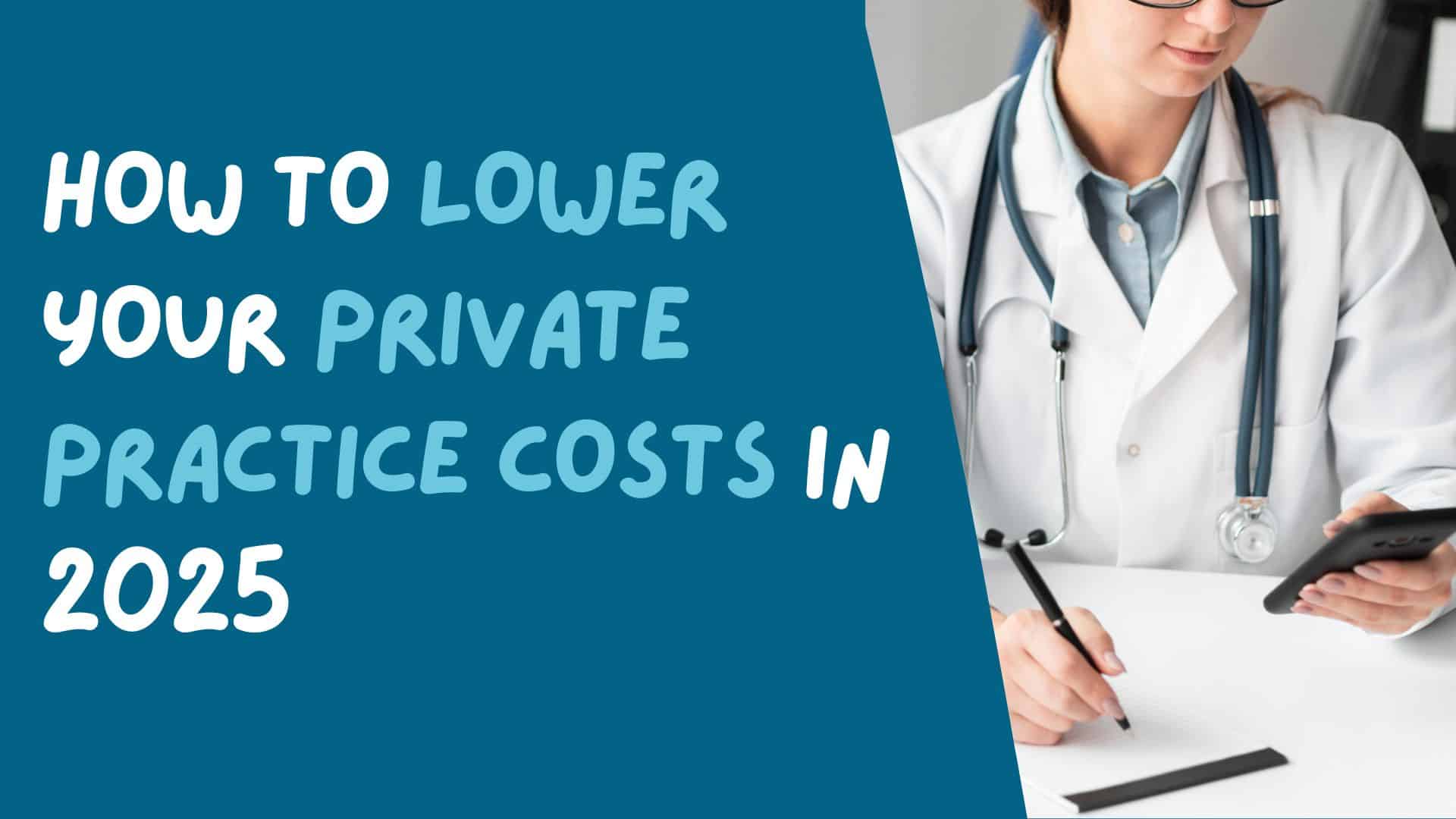If you run a private therapy practice, you already know that income can ebb and flow. Some months, you’re fully booked and barely have time for lunch. Other months feel quieter, with more cancellations and fewer new clients walking through the door.
It’s completely normal, but without a plan, those slow seasons can feel stressful.
The good news is that with a little preparation, you can take the worry out of the slow seasons in private practice and even use them to strengthen your practice. Let’s walk through some practical ways to do just that.
Know When Your Slow Seasons Happen
The first step in budgeting for slow times is to understand when they actually happen. Take a look at your appointment calendar and income over the last year or two.
Do you see dips during school holidays, summer months, or right after the holidays?
Are there insurance cycles or local events that seem to affect your schedule?
Spotting these patterns early lets you prepare instead of being caught off guard. Once you know the rhythms of your practice, you can plan your cash flow, marketing efforts, and time off to match.
Build A Budget Around Real Numbers
Now that you know when things tend to slow down, it’s time to create a budget that reflects the ups and downs of your income.
Start by writing down your fixed expenses: rent, insurance premiums, utilities, software subscriptions, and professional dues. These are the costs that don’t change much, no matter how many clients you see.
Next, list your variable expenses such as supplies, marketing, or travel. These costs might naturally decrease during slow months, but it’s still helpful to estimate them.
Then, project your revenue conservatively. Instead of using your busiest months as your baseline, try using an average of your slower months or trim your usual estimate by 20–30%. That way, you’re planning for a realistic number rather than hoping for the best.
Finally, figure out the minimum income you need to cover everything. This number gives you a clear target and helps you decide how much to set aside during busy months to carry you through quieter times. Aiming for a reserve that covers at least two or three months of your fixed costs can bring a lot of peace of mind.
Make Adjustments Before You Need To
When you see a slow season coming, there’s a lot you can do ahead of time.
Can you pause a non-essential subscription for a couple of months?
Could you switch to a lower-cost software plan or share office space temporarily?
Sometimes, even small cuts in discretionary spending, like overstocking supplies or extra marketing, can make a difference when cash flow is tight.
By planning these adjustments in advance, you won’t feel like you’re scrambling once income dips. Instead, you’ll already have a checklist of things you can tweak to keep your finances steady.
Diversify Your Income Streams
One of the best ways to make slow seasons less stressful is to have more than one source of income. If most of your revenue comes from one-on-one sessions, think about adding something new. Group therapy, workshops, online courses, supervision for newer therapists, or even writing and digital products can all bring in extra cash. Offering supervision to newer therapists, creating digital resources, or adding telehealth sessions if you’ve been mostly in person, can all bring in extra cash.
These extra streams don’t just boost your income during quiet months – they also help you grow professionally and reach new audiences.
Check In Regularly And Adjust
Budgeting isn’t a “set it and forget it” project. To really make it work, check in with your numbers every month or quarter. Look at your income, your expenses, and how they compare to your projections. Track cancellations and no-shows so you can see whether your slow season is deeper or longer than usual.
Keeping up with your bookkeeping means you’ll know exactly where you stand and you won’t be surprised by tax bills or unexpected expenses. Even a simple spreadsheet can do the trick if you keep it up to date.
Take Care Of Yourself
Slow seasons can take an emotional toll, as well as a financial one. It’s easy to feel discouraged, but quieter months can also be a gift. This can be a great time to rest, take a vacation, or catch up on professional development you’ve been putting off. Plan so that when a slow season arrives, you’ve already budgeted for a little time off or inexpensive continuing education.
Reframing the time as an opportunity rather than a setback helps you stay positive and come back refreshed when things pick up again.
TL;DR: We Can Help You Plan Ahead
Planning for slow seasons doesn’t have to feel overwhelming. By knowing your practice’s patterns, creating a realistic budget, setting aside a cushion during busy months, and exploring new income streams, you can smooth out the financial rollercoaster and feel more in control.
If you’d like help building a budget or cash flow plan tailored to your private practice, book a discovery session with TLDR Accounting.
We’d love to help you plan ahead.





